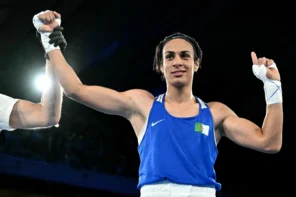Last week, the Utah Jazz beat the New Orleans Pelicans to win their seventh game in a row. Star guard Donovan Mitchell had an excellent performance of 36 points and not a lot to be upset about with regards to his play, but that would quickly change once the post-game interviews began. Shaquille O’Neal, NBA Hall of Famer and commentator for Inside The NBA, was unimpressed by the performance and asked Mitchell, “You’re one of my favourite players, but you don’t have what it takes to get to the next level. I said it on purpose and I wanted you to hear it. What do you have to say about that?”
Talk about a tough crowd. It’s hard to pin down what O’Neal was going for specifically with this comment in terms of a reaction, but the simple “Aight.” Mitchell offered in response was likely not it. Kenny “The Jet” Smith, another commentator, was quick to interject with a more charitable explanation, that the three former greats had been discussing what Donovan Mitchell could do to achieve top-five player status. While it could be brushed off as a fairly innocuous conversation that was brashly translated into a “tough-love” style mentorship moment, that’s not really how the conversation sounded live on national television in real time. However, Mitchell handled it like a champ, brushing the comments aside with a simple “I’ve been hearing that since my rookie year,” and continued to even-headedly praise his team. It certainly didn’t come across as a challenge extended and accepted.
The almighty ‘hot-take” has taken over sports reporting with entire media personalities and brands, including former stars, building long, thriving careers primarily off of negative coverage of key players
The exchange represents a lot of how the NBA media machine has run, particularly in the age of 24/7 engagement through social media. What previously might have been a phone call or a passing comment in a casual setting can now become a public ordeal that spins itself into a half-dozen more stories. The constant need for content and differentiation amongst the crowded field of talking heads has created an environment of negativity surrounding both the players themselves and the game they play. The almighty ‘hot-take” has taken over sports reporting with entire media personalities and brands, including former stars, building long, thriving careers primarily off of negative coverage of key players. Skip Bayless is perhaps the most infamous, least subtle Lebron detractor in the world who regularly makes a point to criticize Lebron even when the conversation is not about him. From 2007 to 2016, Skip shared the stage with fellow personality and meme-inspiring force Stephen A. Smith, whose brand of negativity has been less opaque in delivery. Smith opts for a “tell-it-like-it-is” style compared to Skip’s more aggressive manner. However, Stephen A. has been just as quick to hop down players’ throats, particularly those who he feels don’t play nicely with the media. One example includes when he tried to threaten star Kevin Durant and called him a liar on his show in 2015. More recently, during Kyrie Irving’s leave of absence from the Brooklyn Nets prior to the James Harden trade, Stephen A went so far as to suggest that Kyrie should retire immediately. While Kyrie has certainly not earned himself much public goodwill recently, especially with the media, to suggest that a 28 year old all-star needs to immediately retire over an unexcused absence is plainly ridiculous. It is difficult to tell whether Stephen A. meant this with some hint of irony, but the segment certainly does not come across that way.
There is a need for criticism in sports media, no doubt. Professional athletes are typically adults who are paid good money to perform at a high-level and a key part of job performance is the ability to take criticism. However, interactions of this sort leave no one looking the better in these situations; often causing small criticisms to splinter off into bigger, more significant conflicts that leave players looking petty in their response and analysts terminally uncouth. When considering the many reasons for a decline in sports viewership across the board, we should examine the way in which we consume and criticize it as much as we do any other factor. When a potential new fan turns on a game for the first time only to be immediately bombarded with negative commentary, negative interviews and negative press coverage, how do we expect them to come away with a positive impression of what they’ve seen? When an older, disillusioned sports fan takes the plunge and decides to tune back in, how can we expect them to not have their own misgivings confirmed? In either case, it is important for a more neutral, (or potentially even positive) tone to be adopted in coverage.








